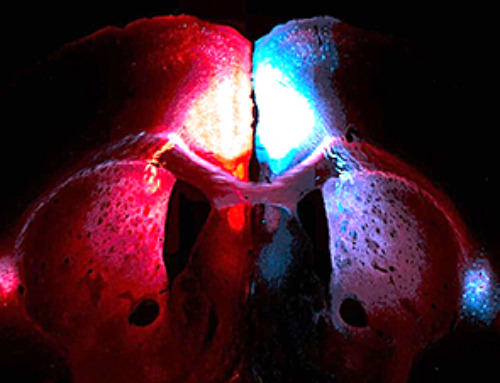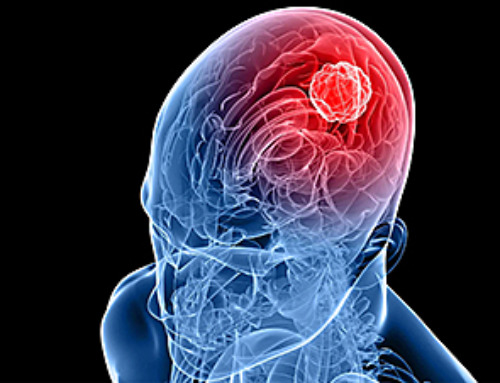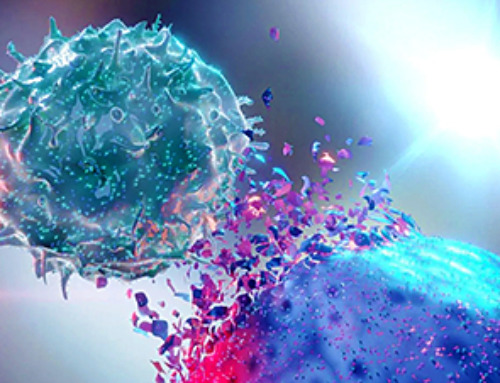New research shows that mental exertion is often linked with negative emotions.
A meta-analysis of 170 studies revealed that regardless of the task or population, increased mental effort correlates with feelings of frustration and stress. This phenomenon is less pronounced in Asian populations, possibly due to different educational experiences. Despite this, people still engage in mentally challenging tasks like chess, driven by the rewards rather than enjoyment of the effort itself.
Mental Effort and Discomfort
According to research published by the American Psychological Association, if somebody complains that it hurts to think, they may be onto something, as mental exertion appears to be associated with unpleasant feelings in many situations.
"Managers often encourage employees, and teachers often encourage students, to exert mental effort. On the surface, this seems to work well: Employees and students do often opt for mentally challenging activities," said senior author Erik Bijleveld, PhD, of Radboud University. "From this, you may be tempted to conclude that employees and students tend to enjoy thinking hard. Our results suggest that this conclusion would be false: In general, people really dislike mental effort."
The research was published in the journal Psychological Bulletin.
Insights From a Comprehensive Meta-Analysis
Researchers conducted a meta-analysis of 170 studies, published between 2019 and 2020 and comprising 4,670 participants, to examine how people generally experience mental effort. They did so by testing whether mental effort is associated with unpleasant feelings and whether that association depends on the task or the population involved.
The studies used a variety of participants (e.g., healthcare employees, military employees, amateur athletes, college students) from 29 countries and involved 358 different cognitive tasks (e.g., learning a new technology, finding one's way around an unfamiliar environment, practicing golf swings, playing a virtual reality game). In all studies analyzed, participants reported the level of effort they exerted as well as the extent to which they experienced unpleasant feelings such as frustration, irritation, stress, or annoyance.
Across all populations and tasks, the greater the mental effort, the greater the unpleasantness experienced by participants.
Design Considerations for Professionals
"Our findings show that mental effort feels unpleasant across a wide range of populations and tasks," said Bijleveld. "This is important for professionals, such as engineers and educators, to keep in mind when designing tasks, tools, interfaces, apps, materials, or instructions. When people are required to exert substantial mental effort, you need to make sure to support or reward them for their effort."
One interesting finding, according to Bijleveld, was that while the association between mental effort and adverse feelings was still significant, it was less pronounced in studies conducted in Asian countries compared with those in Europe or North America. This fits with the general idea that the aversiveness of mental effort may depend on people's learning history. High school students in Asian countries tend to spend more time on schoolwork than their European or North American counterparts and may therefore learn to withstand higher levels of mental exertion early on in their lives, he said.
Behavioral Implications of Mental Effort
More important is the real-world observation that despite the aversive nature of mentally challenging tasks, people still voluntarily engage in them said Bijleveld.
"For example, why do millions of people play chess? People may learn that exerting mental effort in some specific activities is likely to lead to reward. If the benefits of chess outweigh the costs, people may choose to play chess, and even self-report that they enjoy chess," he said. "Yet, when people choose to pursue mentally effortful activities, this should not be taken as an indication that they enjoy mental effort per se. Perhaps people choose mentally effortful activities despite the effort, not because of it."
Reference: "The unpleasantness of thinking: A meta-analytic review of the association between mental effort and negative affect" by Louise David, MSc, Maastricht University; Eliana Vassena, PhD, and Erik Bijleveld, PhD, Radboud University, 5 August 2024, Psychological Bulletin.
DOI: 10.1037/bul0000443
News
Rejuvenating neurons restores learning and memory in mice
EPFL scientists report that briefly switching on three “reprogramming” genes in a small set of memory-trace neurons restored memory in aged mice and in mouse models of Alzheimer’s disease to level of healthy young [...]
New book from Nanoappsmedical Inc. – Global Health Care Equivalency
A new book by Frank Boehm, NanoappsMedical Inc. Founder. This groundbreaking volume explores the vision of a Global Health Care Equivalency (GHCE) system powered by artificial intelligence and quantum computing technologies, operating on secure [...]
New Molecule Blocks Deadliest Brain Cancer at Its Genetic Root
Researchers have identified a molecule that disrupts a critical gene in glioblastoma. Scientists at the UVA Comprehensive Cancer Center say they have found a small molecule that can shut down a gene tied to glioblastoma, a [...]
Scientists Finally Solve a 30-Year-Old Cancer Mystery Hidden in Rye Pollen
Nearly 30 years after rye pollen molecules were shown to slow tumor growth in animals, scientists have finally determined their exact three-dimensional structures. Nearly 30 years ago, researchers noticed something surprising in rye pollen: [...]
NanoMedical Brain/Cloud Interface – Explorations and Implications. A new book from Frank Boehm
New book from Frank Boehm, NanoappsMedical Inc Founder: This book explores the future hypothetical possibility that the cerebral cortex of the human brain might be seamlessly, safely, and securely connected with the Cloud via [...]
How lipid nanoparticles carrying vaccines release their cargo
A study from FAU has shown that lipid nanoparticles restructure their membrane significantly after being absorbed into a cell and ending up in an acidic environment. Vaccines and other medicines are often packed in [...]
New book from NanoappsMedical Inc – Molecular Manufacturing: The Future of Nanomedicine
This book explores the revolutionary potential of atomically precise manufacturing technologies to transform global healthcare, as well as practically every other sector across society. This forward-thinking volume examines how envisaged Factory@Home systems might enable the cost-effective [...]
A Virus Designed in the Lab Could Help Defeat Antibiotic Resistance
Scientists can now design bacteria-killing viruses from DNA, opening a faster path to fighting superbugs. Bacteriophages have been used as treatments for bacterial infections for more than a century. Interest in these viruses is rising [...]
Sleep Deprivation Triggers a Strange Brain Cleanup
When you don’t sleep enough, your brain may clean itself at the exact moment you need it to think. Most people recognize the sensation. After a night of inadequate sleep, staying focused becomes harder [...]
Lab-grown corticospinal neurons offer new models for ALS and spinal injuries
Researchers have developed a way to grow a highly specialized subset of brain nerve cells that are involved in motor neuron disease and damaged in spinal injuries. Their study, published today in eLife as the final [...]
Urgent warning over deadly ‘brain swelling’ virus amid fears it could spread globally
Airports across Asia have been put on high alert after India confirmed two cases of the deadly Nipah virus in the state of West Bengal over the past month. Thailand, Nepal and Vietnam are among the [...]
This Vaccine Stops Bird Flu Before It Reaches the Lungs
A new nasal spray vaccine could stop bird flu at the door — blocking infection, reducing spread, and helping head off the next pandemic. Since first appearing in the United States in 2014, H5N1 [...]
These two viruses may become the next public health threats, scientists say
Two emerging pathogens with animal origins—influenza D virus and canine coronavirus—have so far been quietly flying under the radar, but researchers warn conditions are ripe for the viruses to spread more widely among humans. [...]
COVID-19 viral fragments shown to target and kill specific immune cells
COVID-19 viral fragments shown to target and kill specific immune cells in UCLA-led study Clues about extreme cases and omicron’s effects come from a cross-disciplinary international research team New research shows that after the [...]
Smaller Than a Grain of Salt: Engineers Create the World’s Tiniest Wireless Brain Implant
A salt-grain-sized neural implant can record and transmit brain activity wirelessly for extended periods. Researchers at Cornell University, working with collaborators, have created an extremely small neural implant that can sit on a grain of [...]
Scientists Develop a New Way To See Inside the Human Body Using 3D Color Imaging
A newly developed imaging method blends ultrasound and photoacoustics to capture both tissue structure and blood-vessel function in 3D. By blending two powerful imaging methods, researchers from Caltech and USC have developed a new way to [...]





















